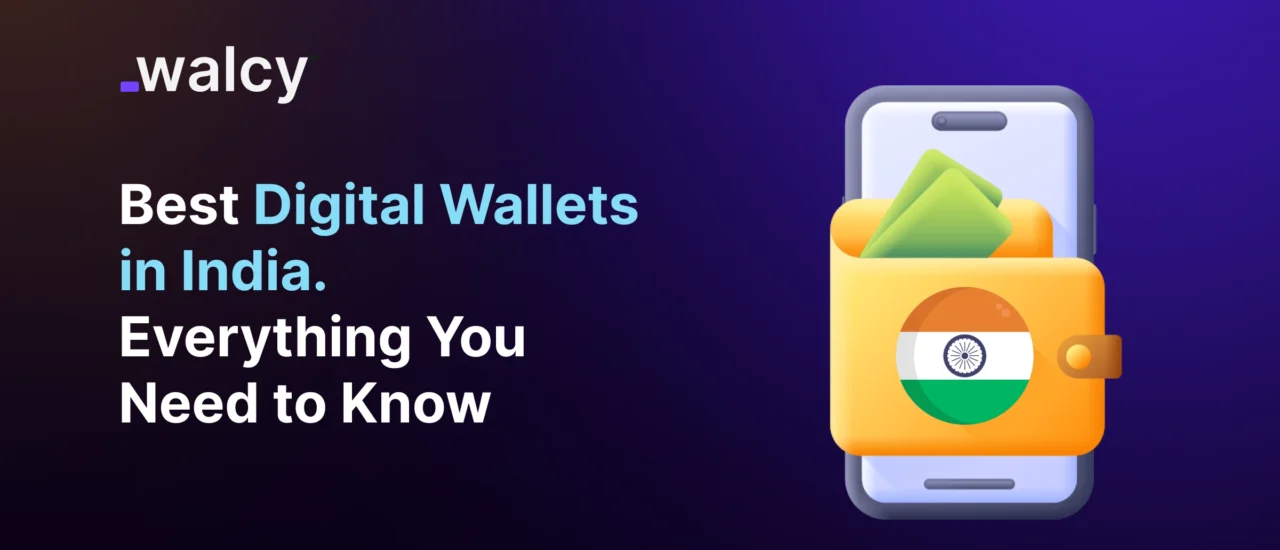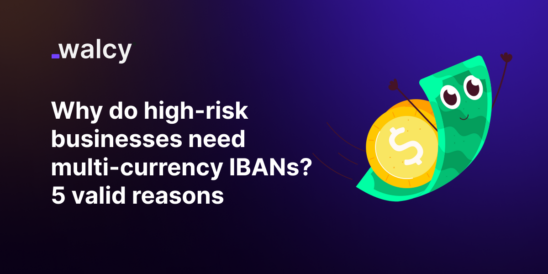Over the past couple of years, digital wallets have become one of India’s fastest-growing concepts, changing how people deal with transactions and interact with money.
In simple terms, a mobile wallet offers users ease regarding cashless and secure transactions through their smartphone.
This blog is going to discuss what mobile wallets are, how they work, and also consider the best digital wallets in India.
What is a Digital Wallet?
A digital wallet is an e-application that is used by one for storing, managing, and dispensing money via their smartphone.
Such wallets serve as an electronic version of the usual wallet in which one keeps information related to payment methods such as debit cards, credit cards, loyalty cards, or UPI credentials.
Users will be able to pay bills, send money, and make payments on the go without resorting to any hard cash or plastic money.
Read about: UPI International Transfer: Comprehensive Guide
How Does a Mobile Wallet Work?
Mobile wallets keep the credentials of the user’s payment securely and provide a channel to start a transaction swiftly and easily. Here’s how it works with a step-by-step explanation:
Step 1:
Add Funds: Users link their bank account, debit/credit card, or UPI ID to the wallet and can add funds to use for future payments.
Step 2:
Payment Authorization: He will choose while making any payment, the mode of transaction to be used- UPI, card, or wallet balance. The wallet will initiate the transfer.
Step 3:
Verification: Most wallets require verification with a PIN, biometrics, or face recognition for added security before giving the green light to a transaction, which helps make the whole thing quick but secure.
Step 4:
Transaction Completion: This wallet shortens the actual time taken to effect payment in seconds. Hence, among the easiest and fastest methods of settling bills for services, mobile wallets are highly ranked.
Types of Mobile Wallets in India
There are many variants of mobile wallets in India, as a few serve different needs of payment and preferences for the user. Here’s an overview:
Closed Wallets:
These can be issued by only one company and can be used within their ecosystem. For instance, Amazon Pay allows payments on Amazon and select other partners and is thus not versatile.
Semi-Closed Wallets:
These wallets can be used for making purchases with quite a few merchants and service providers. Cash withdrawal through these wallets is partial. Paytm, PhonePe, and MobiKwik are examples of such wallets supporting all kinds of transactions on different platforms.
Open Wallets:
These are issued by banks and can be used for making both payments and cash withdrawals through an ATM to offer customers more flexibility. Examples include SBI Yono and Paytm Payments Bank.
Reda about: Best Merchant services providers: A Complete Guide.
Are Mobile Wallets Secure?
Yes, mobile wallets are generally safe, as advanced security measures protecting user information and transactions are in place. These have included:
Encryption: Mobile wallets will encrypt transaction data in such a way that access to sensitive information becomes very hard for unauthorized parties to access, hence assurance of privacy and safety of data.
Multi-Factor Authentication: Mobile wallets may require users to use PINs, passwords, or biometric authentication in verifying user identity, therefore adding security to each transaction.
Tokenization: Normally, tokenization works through the replacement of sensitive payment details with a token or a unique identifier. This decreases the chance of data theft because the real information linked to a card or an account will not be disclosed.
Compliance with Regulatory Requirements: Most of the digital wallets in India are designed to keep in view the regulatory standards to protect customers’ data and cater to legal requirements related to the protection and security of their data.
While mobile wallets are secure, multiple ways to maximize security include not making payments over public Wi-Fi, creating strong passwords, and keeping the devices updated and password-protected.
Advantages of Mobile Wallets
Mobile wallets have a host of advantages that make digital payment easy, accessible, and rewarding for all users. These include:
Convenience: Within one app, users can do everything from making payments to sending money and even paying bills. This reduces the complexity of daily life since they will need to carry neither cash nor cards for different transactions, which saves time.
Accessibility: Some digital wallets do not require one to be connected with a bank account; hence, accessibility of those without traditional banking services, the inclusion of more people in financial services.
Rewards and Cashback: Most mobile wallets offer cashback, discounts, and reward points. This motivates users to make more transactions and save on purchases.
Real-time tracking: Mobile wallets come with transaction histories, which enable users to keep track of their expenditures in an easier way and budget for the same, thus ensuring better financial management.
Wide Acceptance: With ever-growing merchant associations, mobile wallets find acceptance at many online and offline stores, thus turning out to be all-around payment options available everywhere.
Limitations of Mobile Wallets in India
Mobile wallets have many advantages; however, there are certain disadvantages to them as well, and thus these need to be properly weighed by the users, such as:
Limited offline use: In contrast to actual usage, some merchants, especially in rural areas, may not accept these mobile wallets, thereby limiting their use in less urbanized regions.
Internet Dependency: Since mobile wallets depend on the internet, if network coverage is poor in a particular area, such wallets will not work, thus at times inconveniencing the subscriber in remote or low-signal areas.
Transaction Limits: Most wallets have transaction limits; thus, this can hinder larger purchases or transfers, requiring subscribers to look for alternative methods to conduct high-value transactions.
Security Issues: Mobile wallets are generally secure, but phishing or unauthorized access could occur if proper precautions are not adopted; thus, vigilance on the side of the user is indispensable.
Service Charges: A few digital wallets charge extra for certain services, like credit card paythroughs and bank transfers, and frequent users stand to incur higher costs.
Dependency on Devices: As mobile wallets are application-based, people have to depend upon the availability of a compatible smartphone, which might be a limitation for those people who cannot access such devices.
Technical Glitches: Mobile wallets face technical problems, such as application crashes or payment failures, that may disrupt the transaction and annoy the people.
Top 10 Digital Wallets in India
Following are the leading digital wallets in India, each with different features and benefits for different user needs:
Paytm:
Among the leading digital wallets in India, the Paytm wallet offers bill payments, mobile recharges, movie bookings, and more. It does support UPI payments, the balance in the Paytm wallet, and works as a payment bank itself to handle all kinds of everyday transactions.
Google Pay:
Instant bank-to-bank transfer is done through UPI, and for this reason, Google Pay has become all the more popular because of easy usage and high security. With only a scan of a QR code and offering rewards on top, it is widely accepted by all online and offline merchants, thus providing seamless payment experiences.
PhonePe:
The leading app, which is UPI-based, provides bill payment services, money transfer capabilities, and other services ranging from investment and insurance to shopping all in one application; this is extremely convenient considering that it has an interactive interface and a wide net of partner merchants.
Amazon Pay:
This is a closed wallet offer that comes with the Amazon app but gets accepted in several other partner websites and services, making it easier for the purchase of bills, automatic recharge purchases, and similar offers available on Amazon alone, which adds value for shoppers.
BHIM:
Bharat Interface for Money BHIM is a UPI-based application the government supports. It enables instant, secure, and bank-to-bank transfer without holding any wallet balance in between. It’s pretty easy to operate and only directly aimed at transferring without any intermediate wallet balance; this guarantees a smooth payment experience.
JioMoney:
With Reliance Jio backing, JioMoney offers recharges and utility bill payments. Chances are that it will be convenient for users of Reliance services, but with deals and cashback on partner merchant transactions, it is bound to become an attractive alternative.
MobiKwik:
MobiKwik enables bill payments, splitting, and a few investment options. “Zip” from Mobikwik provides instant credit access for short-term needs and is very much acceptable on most online merchants, hence providing a range of financial services.
FreeCharge:
From its beginning as a platform for mobile recharge, FreeCharge has grown to offer bill payments, shopping deals, and other financial services. The website is friendly to use and is popularly used for cashback offers, partnering with top brands on cost-saving options.
Airtel Money:
It is a semi-closed wallet linked with Airtel Payments Bank for easy bill management, recharges, and other utilities by Airtel users. It is also useful in digital purchases from merchant establishments, especially for Airtel subscribers.
YONO by SBI:
YONO, an abbreviation of You Only Need One from SBI, is an online wallet and banking application. Unlike other wallets, it pushes both wallet functionalities and rich banking features. It allows customers to make bill payments, shop online, and even withdraw cash from ATMs for SBI customers. It performs integral banking and wallet tasks.
Conclusion
Digital wallets have made less cash or cashless transactions very smooth and quick in India. With their amazing handiness, high level of safety, and user-friendliness, they have inspired millions to use them.
Each of the mobile wallets in India is uniquely strong in its way, which means choosing one that best suits your needs-whether for cashback, ease of usage, or even secure means of payment-might be a matter of importance.
In front of Indian users, options range from government-backed solutions like BHIM to private giants like Google Pay. However, knowing the specific limitations of each wallet, and its security features, is indispensable for their safe use.
The future of digital wallets in India looks impressive as the technology and acceptance continue to develop and spread, improving access to digital finances for users throughout the country.
Read about: All About Overseas Payments (2024); Comprehensive Guide
Do follow us on Facebook and LinkedIn, to stay connected with us.



